Xtar VI01 USB Current/voltage detector
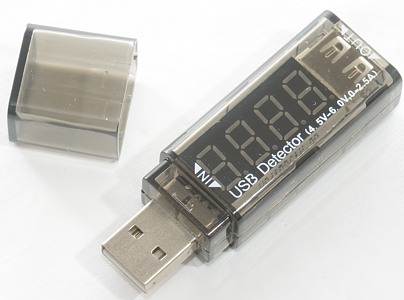
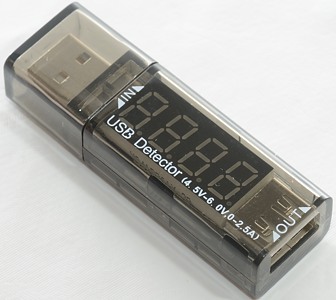
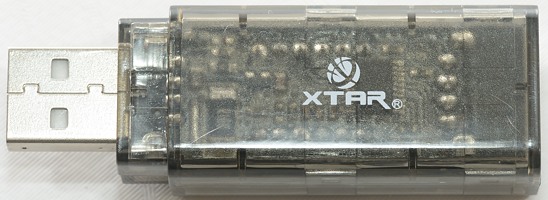
Xtar has made many flashlights and good chargers, this is a new type of product from them. It is a current and voltage meter to use in a usb connection.
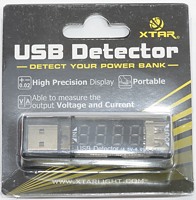
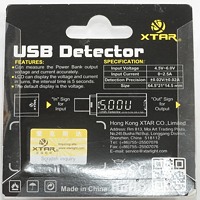
I got the device in a cardboard/plastic package. It was very easy to open, the cardboard could slide out. The only contents in the package is the device, no usb cable or instruction sheet and it is not needed.
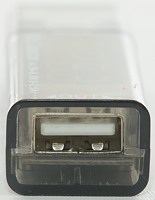
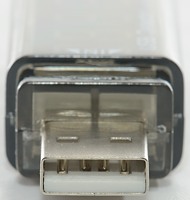
There is an usb connector in each end, one male, one female.
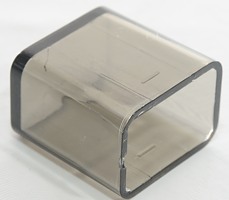
One of the usb connections has a loose cover. I like having a cover over the usb connector, but I do not like loose parts.
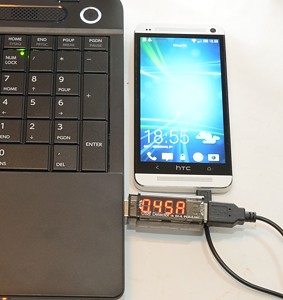
Here it is plugged into a laptop and connected to my phone. The display will show 3 digits and a letter, A for ampere and U for volt. The decimal place is always fixed giving the display a resolution of 0.01 volt and 0.01 ampere.
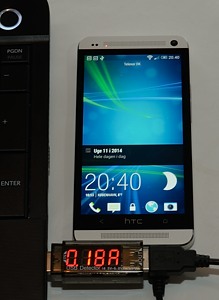
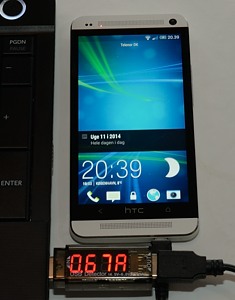
Another test with my laptop, this time with two different cables.
When using the two wire cable the phone will only charge with low current. Using the 4 wire cable (with data), the phone can charge at much higher current.
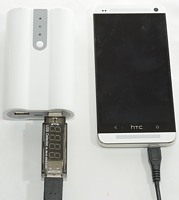
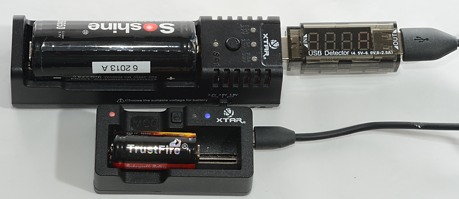
Some other tests it can be used for.
Measurements

To measure I needed some connection with very low resistance. I made two usb connecter with fairly thick wires sticking out.

First I measured the two when connected together, the result was 0.03 ohm or 30mOhm, for the wires and connection between the two.
Because I do not know how this is distributed, I cannot compensate for it in the voltage measurements. Anyway, these looses will also be present when using it in real situations and usual they will be larger.

With the device connected.
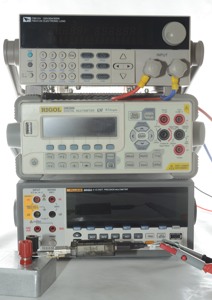
The actual setup required two high precision DMM's, one to measure input voltage and one to measure output voltage and a electronic load.
Voltage was measured on the wires sticking out of my test usb connectors, to avoid voltage drops in thin usb wires.
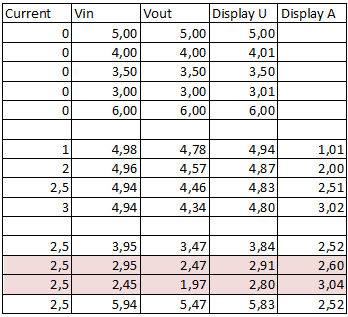
About are some of my measurements. In the two red lines I am way outside the rated specifications and the display shows wrong values.
With a few more test I could draw some conclusions:
- Volt was within +/- 0.01 on the display when not loaded.
- Ampere is within +/- 0.02 on the display.
- When loaded with 2.5A the displayed voltage is about 0.1 volt to low.
- When loaded the voltage will drop, calculations shows the device has between 0.16 and 0.17 ohm resistance, this includes the measurement resistor, the internal connections and connections resistance (The 0.03 ohm from above is subtracted).
- The voltage is shown for the input voltage, i.e. the voltage on the usb output that supplies the current to the device.
- When voltage drops below 4 volt the precision will be reduced (The device is only supposed to work down to 4.5 volt).
- The voltage readout is usable down to about 3 volt.
- The device uses 0.025A (25mA) from the usb power, this current is not included in the display reading
- The usb data lines are passed through, this means the coding on a usb output will be seen on the connected device.
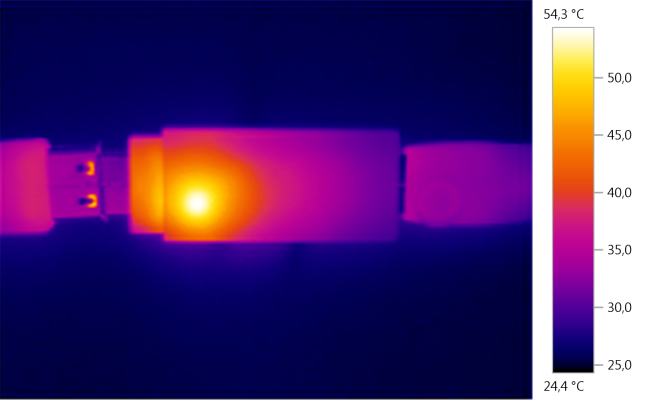
After a short time the measurement resistor in the device gets warm.
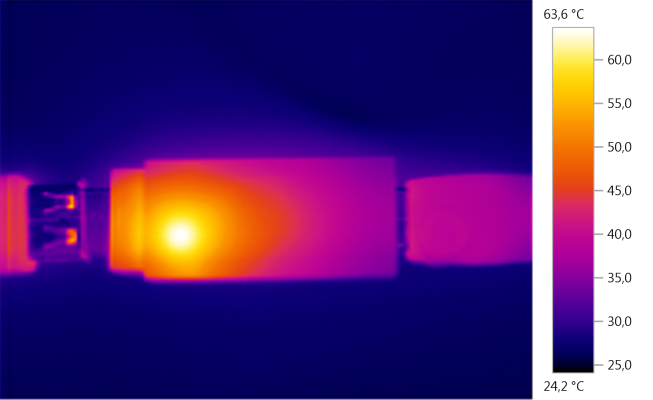
Running 1 hour at 2.5A made it warmer (max. temperature is higher, see scale) and the current readout was still correct.
Conclusion
The device works as expected and can be very useful to check all types of usb devices with.
The voltage readout will be precise at small loads (i.e. below 1A), but at the higher current it will show a slightly low a value. The current readout is always precise.
Notes
The device was supplied by Xtar for a review.



















